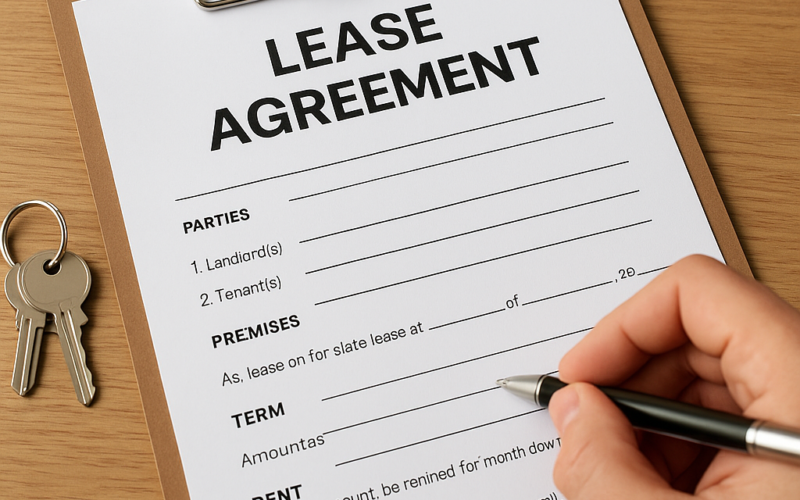As of 1 September 2025, new enforcement measures will come into effect under Malta’s updated rental legislation. One of the most significant changes is the introduction of a €120 late registration fee for landlords who fail to register private residential leases within 30 days of the contract start date. This forms part of a broader amendment to the Private Residential Leases Act (Cap. 604) introduced by Act XX of 2024, which also revises rules around inventories, renewals, subletting, and tenant protections.
While the extension from a 10-day to 30-day deadline offers more flexibility, it also introduces stricter penalties and enforcement mechanisms aimed at improving compliance in the private rental sector.
Registration Is Now a Legal Obligation
Before the recent amendments, lease registration was referred to as a “duty.” The new law rephrases it as an “obligation,” underlining the binding nature of this requirement. The 30-day rule does not only apply to new leases – it also applies retroactively. That means leases that were signed and commenced after 1 January 2020 but have not yet been registered, or were registered late, are still subject to the current legal framework.
It is also critical to note that if a landlord is prosecuted for failure to register, the 30-day period cannot be used as a defence in legal proceedings. In other words, a landlord could still face charges even within the first month of the lease if they have not complied.
Submit your lease agreement online via the Housing Authority’s official portal for quick and compliant registration.
Penalties for Non-Compliance
Failure to register a lease within the 30-day period is now subject to strict financial penalties.
As of 1 September 2025, a €120 Late Registration Fee will be applied to any rental contract submitted more than 30 days after the date of signing. This administrative fee applies to all leases signed from 1 January 2020 onwards.
In addition to this new charge, landlords may face fines ranging from €2,500 to €10,000 per contract, depending on the severity of the breach and whether it is resolved promptly.
Tenants are legally empowered to register the lease themselves if the landlord fails to do so, and any costs incurred – including the late registration fee – can be claimed back from the landlord.
In legal terms, an unregistered lease is considered null and void. This means that a landlord who has not registered a contract may lose the right to enforce it in court, including claiming unpaid rent or lawfully terminating the agreement.
Inventory Now Legally Binding
One of the most impactful changes in the law concerns inventories. Under the updated legislation, every lease – furnished or unfurnished, must include a signed inventory, supported by photographic evidence. This must be submitted together with the lease agreement at the time of registration.
If an inventory is not included, the Housing Authority may reject the registration, and the contract itself is considered legally invalid. This requirement is aimed at reducing disputes over damage and missing items and reinforces the professional standard expected of lease documentation.
Broader Legal Reforms Under Act XX of 2024
The shift to a 30-day registration period is part of a broader package of reforms passed in 2024. Other key updates include:
- Defined procedures for renewals and substitutions: Renewals must follow specific statutory procedures. Rent increases on renewed leases are capped at 5 percent, and any renewal must cover at least one full year. There are also now clear frameworks for replacing or adding tenants during a lease.
- Habitability and occupancy oversight: The Housing Authority has been given broader powers to enforce rules related to minimum housing standards and occupancy limits, which will particularly affect shared housing and subletting.
- Standardised notice periods: Landlords who intend to reclaim a rented property for personal use must now give tenants three months’ notice by registered letter, regardless of the lease type or duration.
- Clarity on subleasing: The law now explicitly includes arrangements where a company leases a property and sublets it to employees, bringing these under the same registration and compliance requirements.
Registration and Documentation for Non-EU Tenants
For tenants who are Third-Country Nationals (TCNs), registered lease agreements are often essential for residency-related applications. Once the lease is registered, a confirmation letter from the Housing Authority can be requested, which is required for residence & work permits.
While the legal duty to register falls on the landlord, TCN tenants should be aware that they can initiate the registration process themselves if the landlord fails to do so. This is especially important in cases where time-sensitive applications depend on proof of housing.
Address Registration Reforms: Strengthening Data Security in 2025
Compliance Is No Longer Optional
The updated rental laws in Malta reflect a clear intention to bring structure and accountability to the private rental market. Extending the registration window to 30 days does offer more flexibility, but it also signals greater enforcement and higher expectations of compliance from landlords.
What hasn’t changed is the government’s firm stance on transparency and tenant protection. Whether you own one rental property or manage several, understanding your obligations under the updated Act is essential to operating legally and avoiding costly mistakes.







